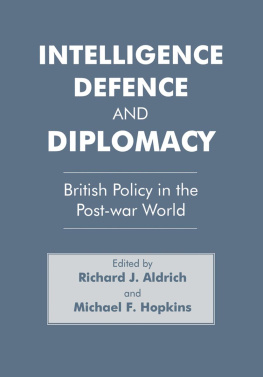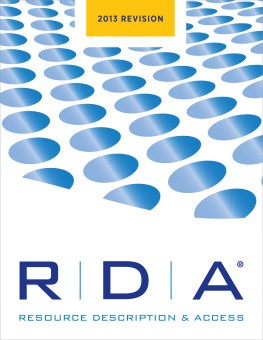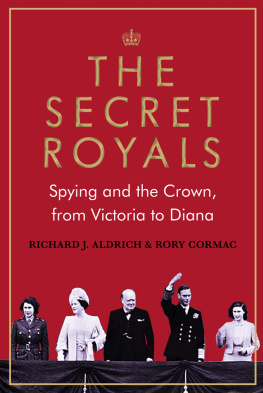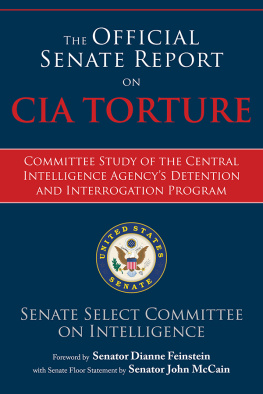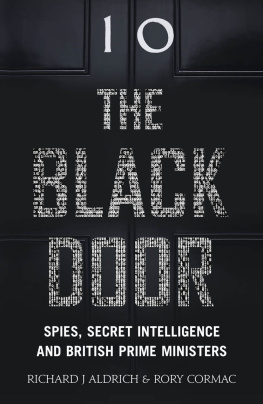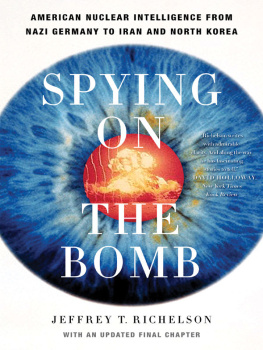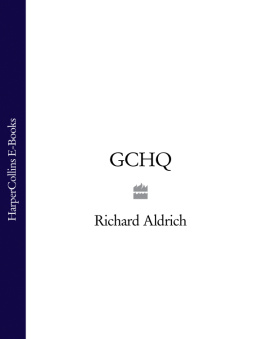Spying on the World
S PYING ON THE W ORLD
The Declassified Documents of the
Joint Intelligence Committee, 19362013
RICHARD J. ALDRICH, RORY CORMAC
AND MICHAEL S. GOODMAN
EDINBURGH
University Press
editorial material and organisation Richard J. Aldrich, Rory Cormac and Michael S. Goodman, 2014
Documents in reproduced by courtesy of the National Archives, London
Document in reproduced by courtesy of the National Security Archive, George Washington University, Washington DC
Document in contains public sector information licensed under the Open Government Licence v2.0
The authors would like to thank the British Academy for generously funding this project
Edinburgh University Press Ltd
The Tun Holyrood Road
12 (2f) Jacksons Entry
Edinburgh EH8 8PJ
www.euppublishing.com
Typeset in 10.5/12.5 pt Miller, Courier, Arial and Times New Roman by Servis Filmsetting Ltd, Stockport, Cheshire, and printed and bound in Great Britain by CPI Antony Rowe, Chippenham and Eastbourne
A CIP record for this book is available from the British Library
ISBN 978 0 7486 7856 3 (hardback)
ISBN 978 0 7486 7857 0 (paperback)
ISBN 978 0 7486 7858 7 (webready PDF)
ISBN 978 0 7486 7860 0 (epub)
The right of Richard J. Aldrich, Rory Cormac and Michael S. Goodman to be identified as authors of the editorial material in this work has been asserted in accordance with the Copyright, Designs and Patents Act 1988 and the Copyright and Related Rights Regulations 2003 (SI No. 2498).
Published with the support of the Edinburgh University Scholarly Publishing Initiatives Fund.
CONTENTS
INTRODUCTION: THE RISE OF THE
JOINT INTELLIGENCE COMMITTEE
F OR MORE THAN half a century, the Joint Intelligence Committee or JIC has been a central component of the secret machinery of British government. It represents the highest authority in the world of intelligence, acting as a broker between the realms of the spy and the policymaker. According to Britains most experienced Whitehall watcher, Peter Hennessy, the JIC and its supporting staff constitute the most sensitive of all the black boxes in the Cabinet Office.
The official guide on this subject, entitled National Intelligence Machinery , claims that the JIC aims to provide Ministers and senior officials with coordinated inter-departmental intelligence assessments. The JIC also acts as the governments watchdog monitoring global developments in an attempt to provide early warning. From the early Cold War days, the committee compiled regular reviews on activities around the Soviet perimeter. It has watched for impending wars ever since. In addition, during the Cold War, the JIC drew up a target list of subjects on which intelligence was urgently required by policymakers. This was then used to guide the activities of the intelligence services in their activities, ranging from agent running to communications monitoring and overhead photography.
The JIC was established in 1936 as a military body to serve the Chiefs of Staff. It performed strongly during the Second World War and its status was upgraded from sub-committee to full committee shortly after 1945, since when it has been involved in almost every key foreign policy decision taken by the British government. During the Cold War the role of the JIC expanded again not least because intelligence was such a vital component in assessing the character and nature of the Soviet Union. In 1957 it was brought within the Cabinet Office, a move that, according to officials, was a reflection of the broadened scope and role of intelligence. This ensured that the JIC was now at the centre of not just defence policy but also broader foreign policy and that it contributed to a growing culture of national security policy at the centre of government.
Today the JIC enjoys a remarkably high profile and since 2001 has often constituted a current political issue. Intense controversies surrounding the Iraq War and weapons of mass destruction, together with the Hutton Report and the Butler Report, ensured that the then JIC Chairman, John Scarlett, found himself centre-stage in a major political controversy. Even as an abbreviation, the initials JIC are known to all and its importance is public knowledge. Moreover, the passionate interest evoked by the release of the government dossier Iraqs Weapons of Mass Destruction: The Assessment of the British Government and the subsequent furore underline the public demand for more information about the precise connection between the core executive of British government and the intelligence services.
This dramatic growth in public interest has had a direct impact on the attention given to the workings of the JIC. For example, an internet search conducted by Dr Julian Lewis, a Conservative MP and member of the Intelligence and Security Committee, revealed that
in the 10 years from 1982 to the beginning of 1992, which includes the first Gulf War, there were just 99 references to the JIC in British newspapers. Even in the 10 years from the beginning of 1992 to the beginning of 2002, which includes the events of 11 September, there were only 431 such references. However, in the 18 months from January 2002 until [July 2003], in that year and a half alone there have been a massive 502 references.
In Lewiss words, these figures implied that the the JIC has become a matter of common currency and political controversy.
The JIC and the Intelligence Community
How does the JIC fit into the broader intelligence community? How does the JIC work in practice? Partly as a result of the neglect of intelligence in wider writings on the British governmental system as a whole and partly as a result of the fragmentary nature of archival releases, the committee often gets treated in isolation by commentators. In reality, the JIC lies at the heart of a Whitehall intelligence machine. The committee is involved at the start and end of the intelligence process: it has traditionally set the requirements and priorities for the collection agencies, and it disseminates intelligence assessments to consumers under its own name (although it does not itself write the assessments).
The British system contains three primary intelligence agencies responsible for collection: the Secret Intelligence Service (MI6), the Security Service (MI5), and the Government Communications Headquarters (GCHQ). After collection, validation of sources is carried out within each agency. Intelligence must then be analysed. This stage tends to take place within Defence Intelligence. Part of the Ministry of Defence and created in 1964, Defence Intelligence is Whitehalls largest analytical body and conducts all source analysis from overt and covert sources. It is therefore a core, but often overlooked, player in the Whitehall intelligence machinery. Defence Intelligence also has some collection responsibilities in support of military operations.
Assessment then takes place inside the central intelligence machinery housed within the Cabinet Office. As mentioned earlier, the JIC does not write JIC assessments. During the Second World War, a body known as the Joint Intelligence Staff was created to act as the committees drafters. This group was strengthened and renamed the Assessments Staff in 1968. Consisting of around thirty individuals seconded from relevant government departments, the Assessments Staff collate and assess incoming intelligence from all sources. Having done so, they compose the intelligence report. The Assessments Staff, however, are not subject experts. Each assessment is therefore discussed in what are known as Current Intelligence Groups. Here experts from across Whitehall scrutinise and challenge the assertions. Once approved, papers are sent up to the JIC for further scrutiny and comment, before dissemination to consumers. Most intelligence, unless it is particularly time sensitive, is then disseminated by the JIC.




